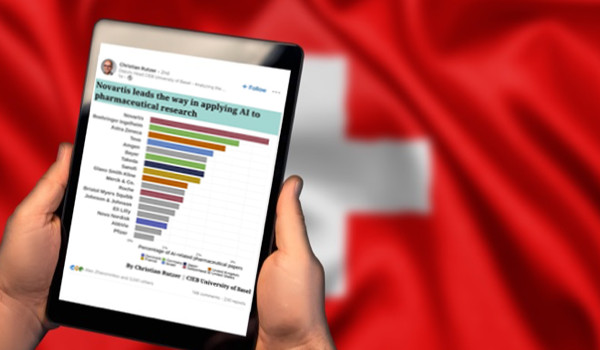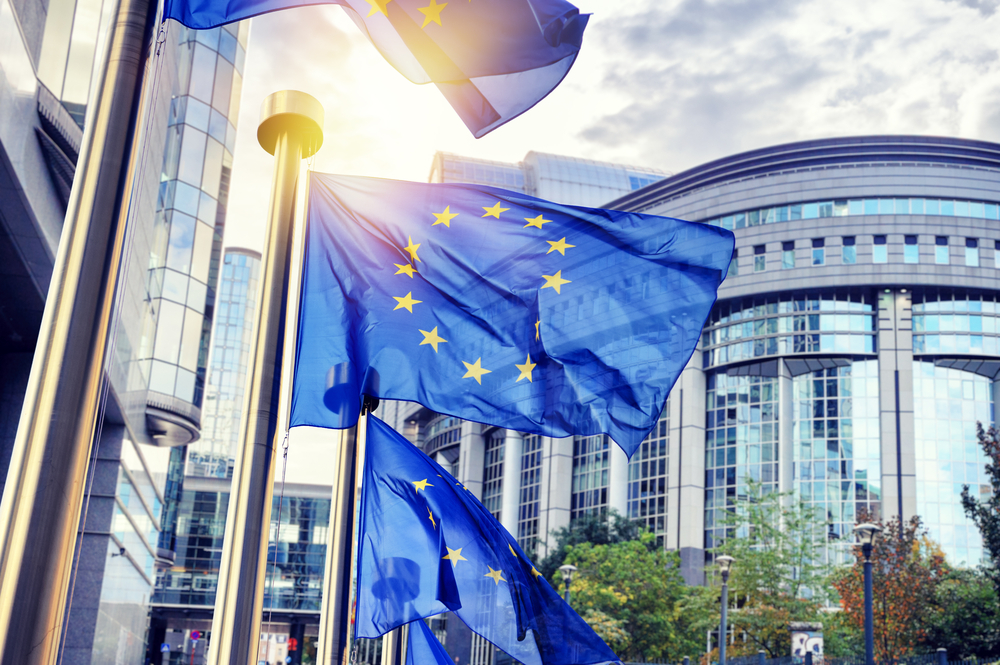


BASEL, SWITZERLAND - As artificial intelligence (AI) achieves ever greater prominence in pharmaceutical research the world over, the Center for International Economics and Business of the University of Basel (CIEB) recently scrutinized the ways various countries are incorporating the technology into their pharma studies.
Its study found Switzerland sitting atop the totem pole in embedding AI into its research among the 10 countries leading the AI-pharma charge. Of pharmaceutical-related papers Swiss researchers published between 2020 and 2022, 1.5 percent used AI methods, per the CIEB. The AI revolution is galvanizing pharma research, and Switzerland stands at the forefront, concludes the analysis - which rests on Elsevier's Scopus abstract and citation database. Its researchers flagged AI papers in pharma articles via targeted keyword searches of titles and abstracts.
Basel-based Novartis is the clear frontrunner among companies, the CIEB study also discovered, with more than 3 percent of its drug discovery publications between 2020 and 2022 showcasing AI applications. Close on its heels was Ingelheim Germany-based Boehringer Ingelheim, with references to AI in about 2.5 percent of its pharma research papers. The United Kingdom's AstraZeneca - headquartered in Cambridge - was likewise a standout, with over 2 percent of its pharma articles citing AI.
The United States was the laggard, however, according to the CIEB: The rate of AI incorporation in pharmaceutical research among major US drug firms trails that of its European peers. This conclusion is further borne out by country-level data the business school posted earlier.1 Novartis' lead may nonetheless stem from its partnership
 Continue with Linkedin
Continue with Linkedin
 Continue with Google
Continue with Google







 1205 views
1205 views










